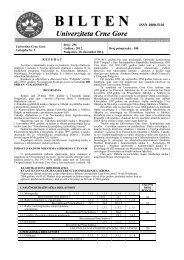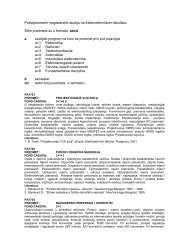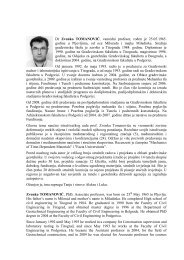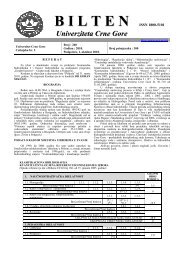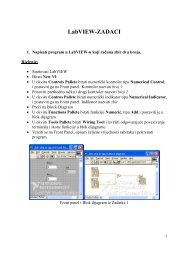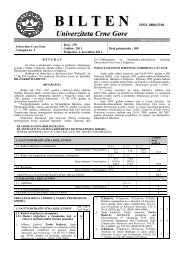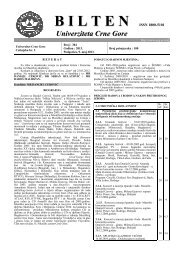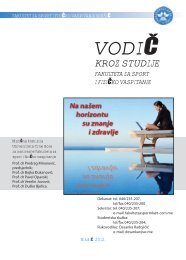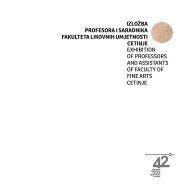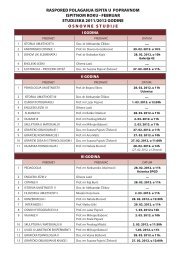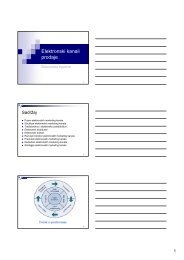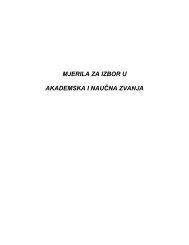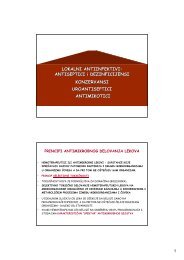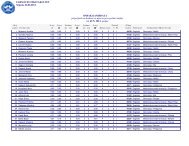WHO monographs on selected medicinal plants - travolekar.ru
WHO monographs on selected medicinal plants - travolekar.ru
WHO monographs on selected medicinal plants - travolekar.ru
You also want an ePaper? Increase the reach of your titles
YUMPU automatically turns print PDFs into web optimized ePapers that Google loves.
<str<strong>on</strong>g>WHO</str<strong>on</strong>g> <str<strong>on</strong>g>m<strong>on</strong>ographs</str<strong>on</strong>g> <strong>on</strong> <strong>selected</strong> <strong>medicinal</strong> <strong>plants</strong><br />
volunteer. The results dem<strong>on</strong>strate that urinary oxalate levels in the volunteers<br />
significantly increased (p = 0.01) by an average of 43.4% during<br />
treatment. The excreti<strong>on</strong> of potential lithogenic i<strong>on</strong>s, calcium, phosphate,<br />
and sodium also increased. However, inhibitors of st<strong>on</strong>e formati<strong>on</strong>, magnesium<br />
and potassium, rose as well (43).<br />
The effect of cranberry juice <strong>on</strong> risk factors for urinary st<strong>on</strong>es was assessed<br />
in a trial involving 12 healthy male subjects. The subjects provided<br />
24-hour urine samples (three samples from each patient during the three<br />
loading phases with water <strong>on</strong>ly). In each loading phase a neutral mineral<br />
water was substituted for 330 ml of the juice. Cranberry juice decreased<br />
the urinary pH, whereas the excreti<strong>on</strong> of oxalic acid and the relative supersaturati<strong>on</strong><br />
for uric acid were increased, indicating the potential for the<br />
development of urinary st<strong>on</strong>es (44).<br />
Adverse reacti<strong>on</strong>s<br />
One rare case of immune-related thrombocytopaenia has been reported<br />
in a 68-year-old patient (45).<br />
Nausea and severe vomiting were reported in a 4-m<strong>on</strong>th-old infant<br />
after administrati<strong>on</strong> of 180 ml of cranberry juice (46).<br />
C<strong>on</strong>traindicati<strong>on</strong>s<br />
The use of cranberry for the treatment of diseases of the urinary tract in<br />
paediatric populati<strong>on</strong>s is ineffective and is not recommended (22, 43).<br />
Warnings<br />
Patients with kidney st<strong>on</strong>es or impaired kidney functi<strong>on</strong> should use products<br />
c<strong>on</strong>taining the f<strong>ru</strong>it <strong>on</strong>ly after c<strong>on</strong>sulting their health care provider (47).<br />
Precauti<strong>on</strong>s<br />
A health care professi<strong>on</strong>al should be c<strong>on</strong>sulted prior to treatment to <strong>ru</strong>le<br />
out serious c<strong>on</strong>diti<strong>on</strong>s such as pyel<strong>on</strong>ephritis.<br />
People with diabetes should be aware of the high c<strong>on</strong>tent of sugar in<br />
the juice and use sugar-free preparati<strong>on</strong>s.<br />
D<strong>ru</strong>g interacti<strong>on</strong>s<br />
One case of a fatal internal haemorrhage was reported in a male patient<br />
whose internati<strong>on</strong>al normalized ratio (INR) increased to > 50 after being<br />
treated with cefalexin, digoxin, phenytoin and warfarin, as well as cranberry<br />
juice for 2 weeks. The subject was also unable to eat during the<br />
2-week period (48). One case report of a possible interacti<strong>on</strong> with warfa-<br />
162



